U.N. Reports ‘Exceptional’ Death Rates in Sea Off Libya
Roughly one in six migrants who set out in traffickers' unseaworthy boats from Libya died in June, a period that corresponds to crackdowns by Italy and Malta against private rescue boats operating in the area.ROME—Roughly one of every six migrants who set out in traffickers’ unseaworthy boats from Libya perished at sea last month, U.N. refugee agency officials said on Friday. The period corresponds to crackdowns launched by Italy and Malta against private rescue boats operating in the area.
Even taking into account that traffickers often send out more boats in the summer to take advantage of warmer weather, that mortality rate was “dramatic and exceptional,” said Carlotta Sami, a Rome-based spokeswoman for the U.N. High Commissioner for Refugees.
Last month, 629 died while 3,136 were rescued at sea, according to UNHCR data. In comparison, in June 2017, 418 died while 23,524 were rescued.
Private aid boats carried out some 40 percent of the rescue operations in January-April 2018 for migrants disembarked in Italian ports, including those first rescued by military and merchant vessels and later transferred to the aid groups’ ships.
But in recent weeks, the private boats’ ability to operate has been sharply curtailed by anti-migrant politics.
Italy’s new right-wing interior minister, Matteo Salvini, is denying the aid boats docking permission at Italian ports, while Malta is investigating whether the vessels follow international maritime rules, so they are no longer stopping in Maltese harbors for fresh supplies and refueling.
UN refugee agency officials noted that in the first six months of 2018, one of every 19 migrants setting out at sea from Libya died, compared to one of every 38 in 2017.
The officials cited the effects of Malta’s and Italy’s crackdowns combined with the poorly-equipped Libyan coast guard’s struggles to conduct successful rescues as factors in making the crossings more perilous than before.
“In the current situation, the search-and-rescue ability has been clearly and severely reduced,” Sami said. “This is having an immediate impact” on survival, Sami said, adding that the private rescue ships should be allowed to operate.
While the voyages are deadlier, the number of migrants taking them is sharply down this year.
In the first half of this year, 45,700 asylum-seekers and migrants reached European shores after rescue, five times lower than the same period two years earlier, the UNHCR said.
The U.N. refugee agency also said more efforts are needed to get migrants identified as being eligible for asylum or some other protection out of Libya, so they won’t put themselves at the mercy of smugglers’ boats.
Some 500 such people have been identified in the few official Libyan detention centers where U.N. personnel have access and are awaiting offers from European or other nations to take them aboard humanitarian flights directly from Libya, said Roberto Mignone, the UNHCR’s representative in Libya.
Other refugees have been already taken to a transit center in Niger, where they await countries to make good on relocations offers for 4,000 of them, Mignone said.
“But so far only 200 have been taken” since December, he noted. The Niger facility has capacity for 1,500 people, but only 200 places are now available, meaning “one more plane full” of transfers from Libya will maximize capacity there, leaving thousands of others stuck in Libya, Mignone said.
Complaining that in Italy, some 40 percent of all asylum-seekers have been granted some sort of protection, if not outright asylum, Salvini announced this week he has instructed his ministry’s asylum commissions to be more rigorous in deciding who deserves to stay in the country, where several hundred thousand migrants have arrived after sea rescues.
Many of the migrants are Africans fleeing poverty, not war or persecution. But Mignone said migrants who were trafficked, shouldn’t be repatriated to their homelands since “the persecutors are the traffickers.”
Your support matters…Independent journalism is under threat and overshadowed by heavily funded mainstream media.
You can help level the playing field. Become a member.
Your tax-deductible contribution keeps us digging beneath the headlines to give you thought-provoking, investigative reporting and analysis that unearths what's really happening- without compromise.
Give today to support our courageous, independent journalists.
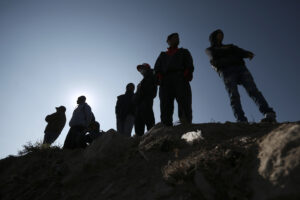

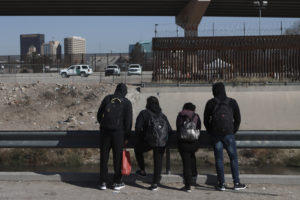
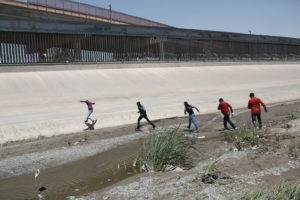
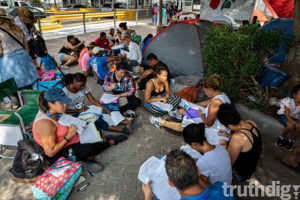
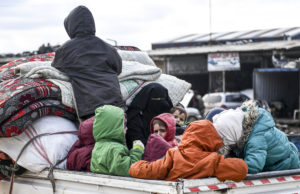
You need to be a supporter to comment.
There are currently no responses to this article.
Be the first to respond.